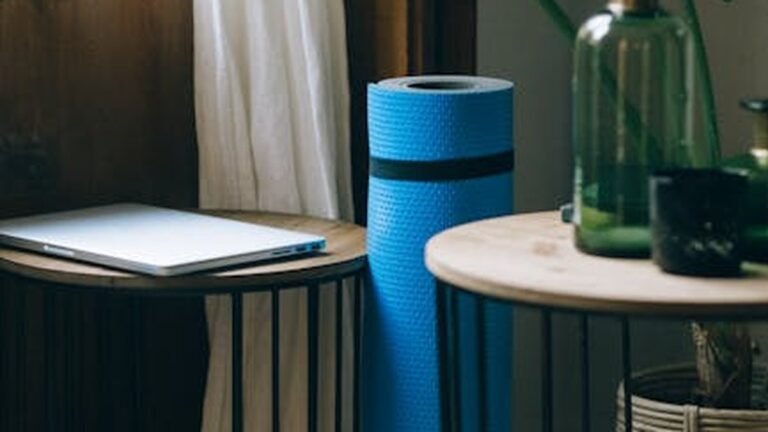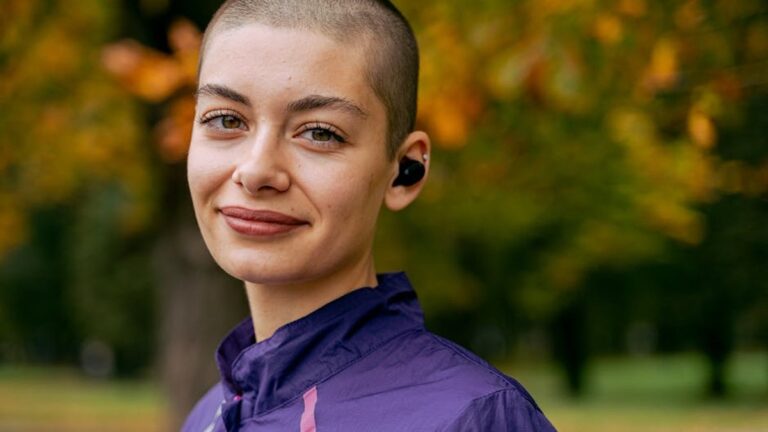Sleep Tech: Smarter Sleep Solutions
Introduction: The Revolution in Rest – Sleep Tech is Here
Are you tossing and turning, struggling to get a good night’s sleep? You’re not alone. Millions suffer from sleep deprivation, impacting their health, productivity, and overall well-being. But there’s hope! The burgeoning field of sleep tech offers innovative solutions to help you achieve the restful sleep you deserve. From smart mattresses to advanced sound machines, technology is transforming how we approach sleep. Let’s dive into the world of sleep improvement technology and explore how it can revolutionize your nights.
Understanding the Importance of Quality Sleep
Before we delve into specific sleep tech solutions, it’s crucial to understand why quality sleep is so vital. Sleep isn’t just about feeling rested; it’s a fundamental pillar of health. During sleep, our bodies repair tissues, consolidate memories, and regulate hormones. Lack of sleep can lead to:
- Weakened immune system
- Increased risk of chronic diseases (heart disease, diabetes)
- Impaired cognitive function (memory, concentration)
- Mood swings and irritability
- Reduced productivity
Studies show that adults need approximately 7-9 hours of sleep per night. However, many struggle to achieve this due to various factors, including stress, poor sleep hygiene, and underlying medical conditions. This is where sleep tech steps in to offer personalized and data-driven solutions.
Smart Mattress Technology: Personalized Comfort and Sleep Monitoring
The smart mattress is more than just a comfortable sleeping surface; it’s a sophisticated piece of sleep tech designed to optimize your sleep environment. These mattresses often incorporate features such as:
- Adjustable firmness: Allows you to customize the support level on each side of the bed, catering to individual preferences.
- Temperature regulation: Some smart mattresses actively cool or warm the bed to maintain an ideal sleep temperature.
- Sleep tracking: Integrated sensors monitor your sleep stages (light, deep, REM), heart rate, breathing rate, and movement.
- Connectivity: Data collected is transmitted to a smartphone app, providing insights into your sleep patterns and offering personalized recommendations.
Example: The Eight Sleep Pod 3
The Eight Sleep Pod 3 is a popular example of a smart mattress. It features temperature regulation, sleep tracking, and personalized insights. Users report improved sleep quality and faster sleep onset after switching to the Pod 3.
Practical Tip: When choosing a smart mattress, consider your budget, desired features, and the accuracy of the sleep tracking technology. Read reviews and compare models to find the best fit for your needs.
Sound Machine for Sleep: Creating a Tranquil Sleep Environment
White noise machines, also known as sound machines for sleep, are a simple yet effective form of sleep tech. These devices generate consistent, soothing sounds that mask distracting noises, promoting relaxation and easier sleep onset. Different types of sounds available include:
- White noise
- Pink noise
- Brown noise
- Nature sounds (rain, ocean waves, forest ambience)
- Fan sounds
The Science Behind Sound Therapy
The effectiveness of sound machines for sleep lies in their ability to create a consistent auditory environment. By masking sudden noises, they prevent disruptions that can jolt you awake during the night. Studies have shown that white noise can reduce sleep latency (the time it takes to fall asleep) and improve sleep efficiency.
Choosing the Right Sound Machine for Sleep
When selecting a sound machine for sleep, consider the following factors:
- Sound variety: Look for a machine with a range of sound options to find what works best for you.
- Volume control: Ensure the machine allows you to adjust the volume to a comfortable level.
- Timer function: A timer allows you to set the machine to turn off automatically after a certain period.
- Portability: If you travel frequently, consider a portable sound machine.
Practical Tip: Experiment with different sounds to find what you find most relaxing. Some people prefer the constant hum of white noise, while others find nature sounds more soothing.
Sleep Tracking Device: Unlocking Insights into Your Sleep Patterns
Sleep tracking devices are wearable or non-wearable technologies designed to monitor your sleep patterns and provide data-driven insights. These devices typically track:
- Sleep duration
- Sleep stages (light, deep, REM)
- Heart rate
- Movement
- Breathing rate
The data collected is presented in a user-friendly format on a smartphone app or website, allowing you to identify trends and potential issues affecting your sleep. Popular types of sleep tracking devices include:
- Smartwatches
- Fitness trackers
- Dedicated sleep trackers (e.g., Oura Ring)
- Smartphone apps (using the phone’s accelerometer)
Using Sleep Tracking Devices Effectively
While sleep tracking devices can provide valuable information, it’s important to use them with caution. Here are some tips for effective use:
- Focus on trends, not individual nights: Don’t get discouraged by a single night of poor sleep. Look for patterns over time.
- Consider the limitations of the technology: Sleep tracking devices are not always perfectly accurate. Use the data as a guide, not a definitive diagnosis.
- Combine data with subjective feelings: Compare the data from your sleep tracking device with how you feel in the morning.
- Consult a healthcare professional: If you have concerns about your sleep, consult a doctor or sleep specialist.
Practical Tip: Choose a sleep tracking device that is comfortable to wear and provides data that is easy to understand. Look for devices with good battery life and reliable connectivity.
Other Emerging Tech for Better Sleep
Beyond smart mattresses, sound machines, and sleep tracking devices, other exciting tech for better sleep is emerging:
- Light therapy lamps: Help regulate your circadian rhythm by mimicking natural sunlight.
- Smart alarms: Wake you up during a light sleep stage, minimizing grogginess.
- Meditation and mindfulness apps: Guide you through relaxation techniques to reduce stress and improve sleep.
- Blue light filters: Reduce exposure to blue light from electronic devices, which can interfere with sleep.
Conclusion: Embracing Sleep Tech for a Healthier Future
Sleep tech offers a powerful toolkit for improving your sleep quality and overall well-being. From the personalized comfort of smart mattresses to the soothing sounds of sound machines and the data-driven insights of sleep tracking devices, there are solutions to address a wide range of sleep challenges. By embracing these sleep improvement technology advancements and combining them with healthy sleep habits, you can unlock the door to a more restful and revitalized life. Remember to consult with a healthcare professional if you have persistent sleep problems. Sweet dreams!
References
-
Sleep Foundation
– Comprehensive sleep health information and research. -
National Institutes of Health Sleep Health
– National Institutes of Health sleep science and guidelines. -
Mayo Clinic Sleep Guide
– Medical sleep advice from Mayo Clinic experts.






